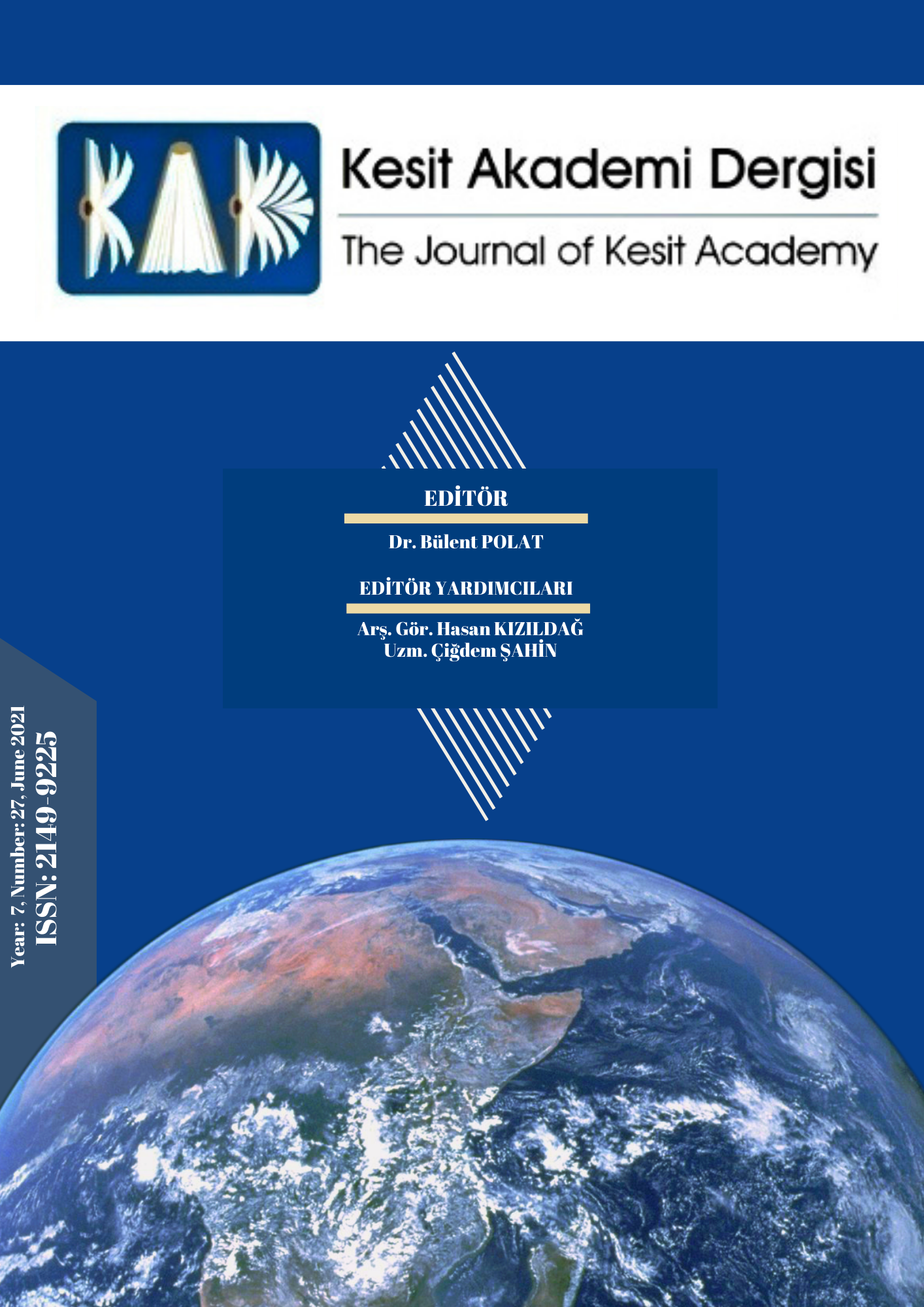Author :
Abstract
Yöntem bir anlamda parçaların nasıl oluşturulduğu ve düzenlendiği şeklinde değerlendirilebilir. Ancak, yöntem nihayetinde parçaların nasıl düzenleneceğine ilişkin program ve aşamaları içeren bir bir harita gerektirir. Araştırmacı yöntem kullanmak suretiyle geçerli bir araştırma yürütebilir. Özellikle bilgisayarlarda kullanılmaya başlamasıyla birlikte algoritmalar genel olarak sorun çözümüne ilişkin birbirinden farklı matematik modeller oluşturabilme kapasitesine eriştiler. Gerçekten de verili bir araştırma sorununu çözmek için algoritmalar belirgin kısa ve öz çözümler sunabilir. Bir algoritma araştırma sorununu kuram ile kuramı hipotez ile ve hipotezi de anket soruları ile ilişkili hale getirebilir. Ayrıca algoritmalar özellikle nicel araştırmalarda sundukları modeller ile işlev görürler. Bu, algoritmaların belirli bir araştırma sorununu, kuram kullanımı olasılıkları ve hipotez ve anket sorusu uyumu oluşturmaya bağlı olarak çeşitli yollardan çözebileceği anlamına gelir.
Keywords
Abstract
Methodology may be estimated how to make and organize things, in a manner of speaking. However, methodology require a map indicating a program schedule and stages of making things, at least. A researcher may make valid research with using methodology. With particularly beginning to operate in computers, algorithms generally have the capability to form several kind of mathematical models about solving problem. Indeed, to solve given research problem, algorithms may correctly describe briefly a solution. One of algorithm may relate definite research problem with theories, theories with hypothesis, and hypothesis with questionnaries. In addition, algorithms function with its models especially in quantitavite researches; and this means they may solve definite research problem via functioning several kinds of ways depending upon combinations among options of theory using, hypothesis and questions forming.
Keywords
- Babbie, R. C. (1991). Survey Research Methods. CA Wadsworth: Belmont
- Corbetta, P. (2003). Social Research Theory, Methods and Techniques. Sage Publications: London.
- Creswell, W. J. (1999). “Mixed Method Research: Introduction And Applicaiton” in Cizek, G. J. (Ed.), Handbook of Educational Policy. Academic Press: San Diego, 455-472.
- Creswell, W. J. (2014). Research Design Qualitative, Quantitative, and Mixed Methods Approaches. Sage: London.
- Crotty, M. (1998). The Foundations of Social Research: Meaning and Perspective in The Research Pro- cess. Sage: London.
- Dawson, C. (2002). Practical Research Methods a User-Friendly Guide to Mastering Research Tech- niques and Projects. Howtobooks: Oxford.
- Fink, G. A. (1995). The Survey Handbook. Sage: Thousand Oaks.
- Fowler, J. F. (1992). Survey Research Methods. Sage: Thousand Oaks.
- Kemmis, S. and Wilkinson, R. McT. (1998). “Particapatory Action Resarch and The Study of Practice”. in Atweh, B et.al (Ed.), Action Resarch in Practice: Partnerships For Social Justice in Education. Routledge: New York, 21-36.
- Lipsey, W. M. and Hurley, S. (1990). Design Sensitivty: Statistical Power For Experimental Research. Sage: Newbury Park.
- Mcneill, P. and Chapman, S. (2005). Research Methods. Routledge: London.
- Morse, M. J. (1994). “Designing Funded Qualitative Resarch”. Denzin, N. K. and Lincoln, Y. S. (Ed.), Handbook of Qualitative Research. Sage: Oaks, 220-235.
- Neuman, W. L. (2007). Basics of Social Research Qualitative and Qunatitative Approaches. Pearson Aducation: Boston.
- Tuckman, W. B. (1999). Conducting Educational Research. College Publishers: Johannersburg.
- Yıannıs N. M. (2001). “What is An Algorithm?”, Mathematics Unlimited-2001 and Beyond, Björn Engquist and Wilfred Schmid (Ed.), Springer: Los Angeles, 919-936.





